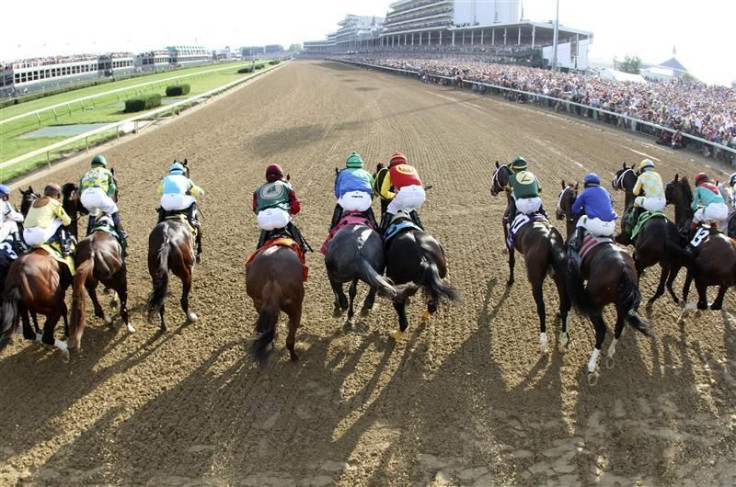Kentucky Derby's Unchallenged Position In US Horse Racing Explained In Two Charts

The Kentucky Derby is not just about over-the-top hats, celebrities and mint juleps. Each year, millions of dollars changes hands and hundreds of thousands of fans celebrate the race either in-person at Churchill Downs or in front of their screens.
Even today, the 141-year-old race is still the top horse race in the U.S. in terms of attendance and amount of money wagered.
Data collected by International Business Times from various official sources shows that Derby attendance in the past decade has been consistent, ranging from 151,616 people in 2013 to 165,307 in 2012 while other major horse races experienced huge fluctuation in the same period.
The race -- also known as "The Run for the Roses," as the winner is presented with a huge garland of roses -- has attracted the highest number of wagers over the past 10 years, except in 2010 when it was surpassed by the Breeders' Cup. In that year's Breeders' Cup, the undefeated Zenyatta was attempting to close out her career a perfect 20 for 20 with a second victory in the Breeders’ Cup Classic.
The Preakness Stakes saw a huge drop in attendance in 2009 while Belmont Stakes' attendance has been a roller coaster. The volatility of the Belmont Stakes largely depends on whether a Triple Crown winner has a chance to be crowned. In 2008 and 2014, Big Brown and California Chrome respectively had a chance to be the first Triple Crown since 1978, but both failed.
The hype created by last year's Belmont Stakes Day brought in a record-breaking wager total of $153.9 million, an increase of $62.9 million, or nearly 70%, compared to previous year, according to the 2014 second quarter financial statement of the New York Racing Association that operates the race. However that was still $32.7 million less than the $186.6 million bet on the Derby.
Dubbed the "the fastest two minutes in sports," the Derby is in fact the youngest of the three Triple Crown races, getting its start in 1865, while the Belmont Stakes' first race was held in 1867 and the inaugural Preakness race was in 1873. However, it is considered the oldest continuously-run sporting event because Preakness and Belmont were interrupted in 1891-1893 and 1911-1912, respectively.
© Copyright IBTimes 2025. All rights reserved.





















